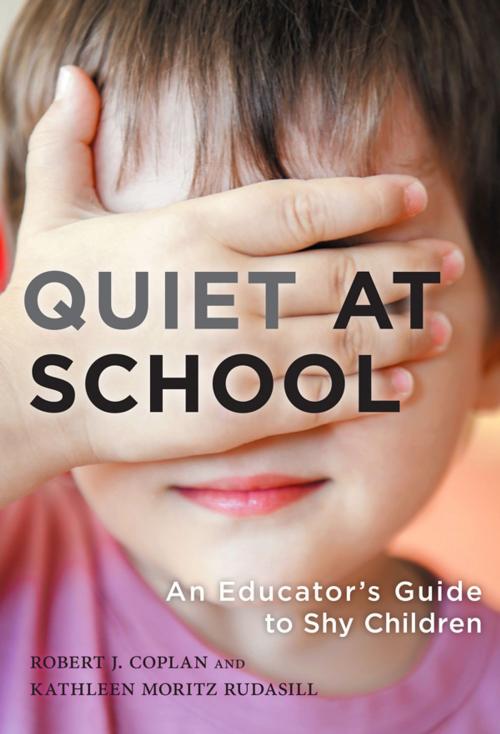Quiet at School
An Educator's Guide to Shy Children
Nonfiction, Reference & Language, Education & Teaching, Elementary, Educational Theory, Educational Psychology, Health & Well Being, Psychology, Child & Adolescent, Child Development| Author: | Robert J. Coplan, Kathleen Moritz Rudasill | ISBN: | 9780807774816 |
| Publisher: | Teachers College Press | Publication: | December 15, 2009 |
| Imprint: | Language: | English |
| Author: | Robert J. Coplan, Kathleen Moritz Rudasill |
| ISBN: | 9780807774816 |
| Publisher: | Teachers College Press |
| Publication: | December 15, 2009 |
| Imprint: | |
| Language: | English |
Compared to their more sociable counterparts, shy children are at greater risk for a variety of difficulties in elementary school, including internalizing problems, difficulties with peer relationships, and poorer academic performance. Written by a developmental and an educational psychologist with decades of experience between them, this book demystifies the latest research on shyness. It offers a comprehensive and accessible guide to everything teachers should know about shy children. Topics covered include how shyness develops in childhood, the unique challenges faced by shy children at school, and general strategies and specific techniques for improving shy children’s social, emotional, and academic functioning at school. Despite an increase in research on shyness, shy children are still not well understood by teachers and other school personnel. Quiet at School offers research-based practices for creating safe and inclusive learning environments that will help shy students thrive.
Book Features:
- The first book about shy children specifically written for classroom teachers.
- Best practices that reflect the latest research in educational and developmental psychology.
- A focus on the importance of positive teacher–child relationships.
- Case studies and recommendations for understanding and teaching shy children.
“For more than 2 decades, the authors’ research has influenced practitioners and researchers alike. Now you and I can benefit from the evidence-based teacher practices they offer throughout this book. Actually, the ones who will benefit the most are the shy children who sit quietly in your classroom.”
—From the Foreword by Sandee McClowry, NYU Steinhardt
“This wonderful volume is a contemporary rendering of well-informed best practices not only for responding to children we label as shy, but information that can be applied to all children. This is recommended reading for all elementary educators.”
—Robert C. Pianta, University of Virginia
Compared to their more sociable counterparts, shy children are at greater risk for a variety of difficulties in elementary school, including internalizing problems, difficulties with peer relationships, and poorer academic performance. Written by a developmental and an educational psychologist with decades of experience between them, this book demystifies the latest research on shyness. It offers a comprehensive and accessible guide to everything teachers should know about shy children. Topics covered include how shyness develops in childhood, the unique challenges faced by shy children at school, and general strategies and specific techniques for improving shy children’s social, emotional, and academic functioning at school. Despite an increase in research on shyness, shy children are still not well understood by teachers and other school personnel. Quiet at School offers research-based practices for creating safe and inclusive learning environments that will help shy students thrive.
Book Features:
- The first book about shy children specifically written for classroom teachers.
- Best practices that reflect the latest research in educational and developmental psychology.
- A focus on the importance of positive teacher–child relationships.
- Case studies and recommendations for understanding and teaching shy children.
“For more than 2 decades, the authors’ research has influenced practitioners and researchers alike. Now you and I can benefit from the evidence-based teacher practices they offer throughout this book. Actually, the ones who will benefit the most are the shy children who sit quietly in your classroom.”
—From the Foreword by Sandee McClowry, NYU Steinhardt
“This wonderful volume is a contemporary rendering of well-informed best practices not only for responding to children we label as shy, but information that can be applied to all children. This is recommended reading for all elementary educators.”
—Robert C. Pianta, University of Virginia















